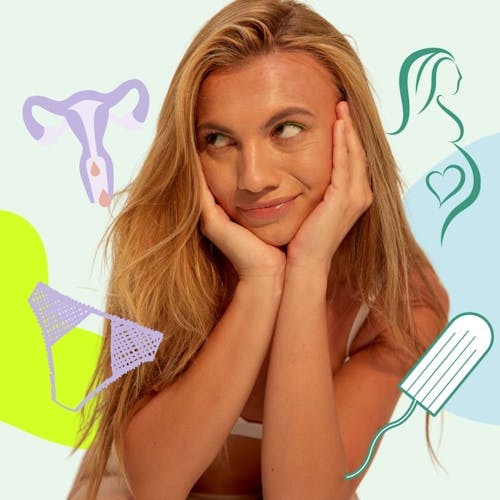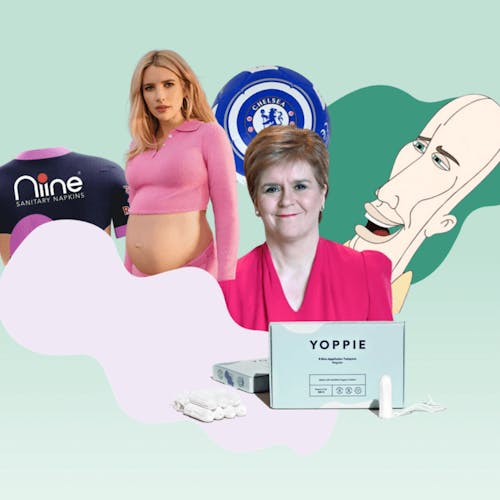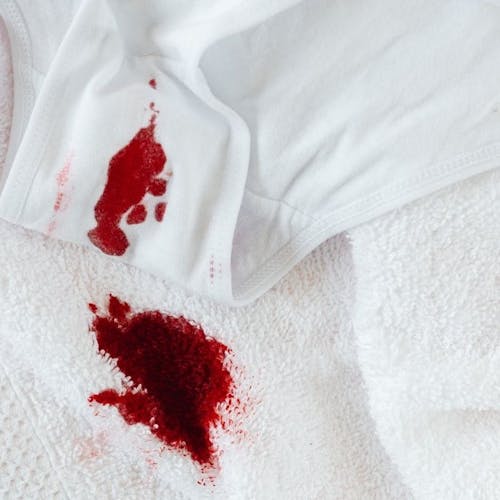This website uses cookies to enhance the user experience. By using Yoppie you are agreeing to our use of cookies.
Lab Queens: Celebrating Women In Biology
Written by Yoppie
08 Mar 2022
Dr Özlem Türeci
Dr Jennifer Doudna
Professor Sarah Gilbert
Professor Cynthia Kenyon
Professor Mary-Claire King
We all know the names Marie Curie, Rosalind Franklin and the like - pioneers in their respective scientific fields throughout history - but the last couple of years have shown just how important these fields are, and how vital the work is to all of us. So without further ado, let’s celebrate the women working in the fields of biology, genetics and virology today, who are quite literally saving all our lives.
Dr Özlem Türeci

Remember 90-year-old Margaret Keenan on TV, getting the very first approved Covid-19 vaccine at a hospital in Coventry? Yeah, Dr Özlem Türeci made that happen.
Dr Türeci is one half of the super-duo that headed up the team behind the Pfizer vaccine that’s being used in the fight against COVID-19, along with her husband Uğur Şahin. To put their achievement into context, the previous modern record for the speed of a vaccine being developed was achieved in the 1960s for mumps, and it took four years. Dr Türeci and Uğur Şahin created the Pfizer vaccine in less than a year.
Dr Türeci is the CMO of BioNTech, which she co-founded in Germany with her husband. They previously worked in the field of cancer research, but realised they could apply similar research principles to the development of a Covid-19 vaccine, and hey presto, they’ve only gone and done it. Dr Türeci once said in an interview that on their wedding day, she and her husband still managed to make time for lab work, which is some pretty serious dedication to the cause.
Dr Jennifer Doudna
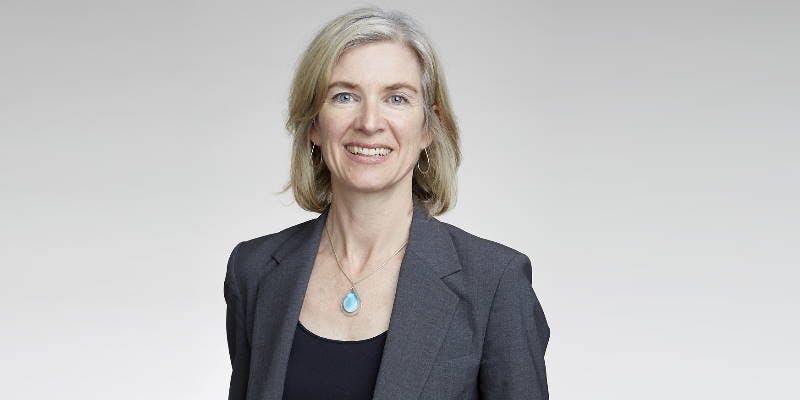
When you Google women in science, Jennifer Doudna’s name appears again and again, and for good reason. Her team invented a technology for editing genomes, named CRISPR-Cas9, and as such, she is generally considered one of the greatest living scientists. If you’re thinking “why the big fuss over the bottom drawer of the fridge?”... wrong crisper.
CRISPR-Cas9, in a nutshell, enables scientists to make incredibly precise edits to DNA in cells, and this has the potential to cure genetic deformities and diseases, such as cancer. Studies have already shown the technology can be used to alter the DNA of the HIV virus in human cells, which is huge.
The problem is that despite its wow-factor and potential to really change lives, it also comes with some ethical questions, like the morality of using the technology to create “designer babies”, i.e. a baby whose genetic make-up has been edited to produce specific physical and medical outcomes - essentially making the ‘perfect’ human. Although it leaves us with an uneasy feeling about the potential use of the technology, there’s no denying that it could indeed help eradicate cell diseases which, up until now, have been considered incurable. Pretty groundbreaking stuff, which led to Jennifer Doudna receiving the Nobel Prize in Chemistry in 2020.
You can watch her Nobel Lecture here.
Professor Sarah Gilbert
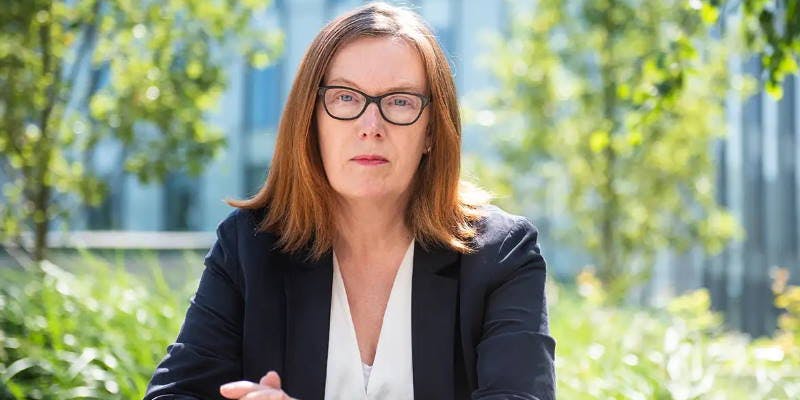
Would you believe Professor Sarah Gilbert almost quit working in science altogether while working on her PhD? But something made her stay, and it’s safe to say it was the right decision. Prof. Gilbert formed the team that developed the new coronavirus vaccine at Oxford University, which has proved effective at stopping people from developing Covid-19 symptoms. Turns out, she never intended to become a vaccine specialist, but over the years she found herself working on vaccines for malaria, Mers, and even led the first trial of an Ebola vaccine.
Now, she’s tackling Covid-19, which led her team to develop one of the vaccines being given to people across the UK right now. When discussing her working day, she says it begins in the early hours of the morning and ends very late at night. Saving the world is tough. Did we mention she is also a mum to triplets? Professor Gilbert, you absolute ledge.
You can learn more about the vaccine in this presentation.
Professor Cynthia Kenyon

OK, many of us probably wouldn’t mind turning back the clock on our crow’s feet, but what about actually extending our life - is it possible? Molecular biologist Cynthia Kenyon and her team are working on it. Her genetic studies on ageing in worms and mice have already shown that it may be possible to extend the life of a human being too. Anyone else reeeally want to see the super youthful mice from that trial?
Based on research around hormone receptors, her work has shown that it may be possible to make people less likely to get ageing diseases like Alzheimer’s, cancer, or heart disease. The idea is that we could essentially take a pill to introduce mutated daf2 hormone receptors into our bodies, and voila, eternal life! Well, not quite, but the research is interesting.
Cynthia Kenyon currently works with Google’s Calico, with the aim to attempt to lengthen the lives of humans by 100 years. She is cooking up a storm in ageing research, trying to help people live longer, healthier lives.
Professor Mary-Claire King
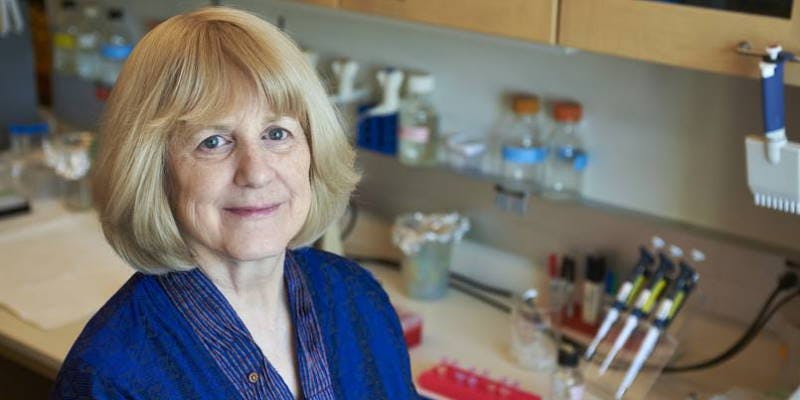
Mary-Claire King got her bachelor’s degree in mathematics in 1966 from Carleton College, and her Ph.D. in genetics in 1973 from University of California, Berkeley, where her dissertation was a comparative protein analysis of humans and chimpanzees. It was this research that led to the first determination that humans and chimpanzees have most of their genes in common. Her original figure of 99% has been revised downward to around 97%, but the impressiveness of the discovery stands.
She joined the University of California–Berkeley as a professor of genetics and epidemiology, and it was here, in 1990, that she discovered that a single gene called BRCA-1, plays an important role in many types of breast cancer. This discovery led to genetic tests that, today, enable women with a family history of breast cancer to find out more about their own prospects for developing cancer. Not only is she a female scientist worth celebrating, but she’s done a huge service for women everywhere, in giving us the ability to potentially predict this major health concern.
Watch a more in-depth video here about Mary-Claire King’s incredible achievements.
What amazing women are you celebrating for International Women's Day this year? Know of another noteworthy lady in biology, genetics or virology that we should share? Shout out in our private Facebook group or drop us a note on Insta @itsyoppie. Don't forget that our personalised period box can get organic tampons, PMS supplements and more delivered easily and regularly through your letterbox, leaving you more time to get on with saving the world (or whatever else you may be doing)!
Section jump
Back to top
Subscribe To Our Newsletter
YOPPIE





© 2026 Yoppie is a registered trademark of Phlo Technologies Ltd.
Yoppie's supplements are not a substitute for a varied diet and healthy lifestyle and are not intended to diagnose, treat, or cure any disease. If you are pregnant, breastfeeding, have a medical condition or are under medical supervision, please consult with your doctor before taking any of our products.




